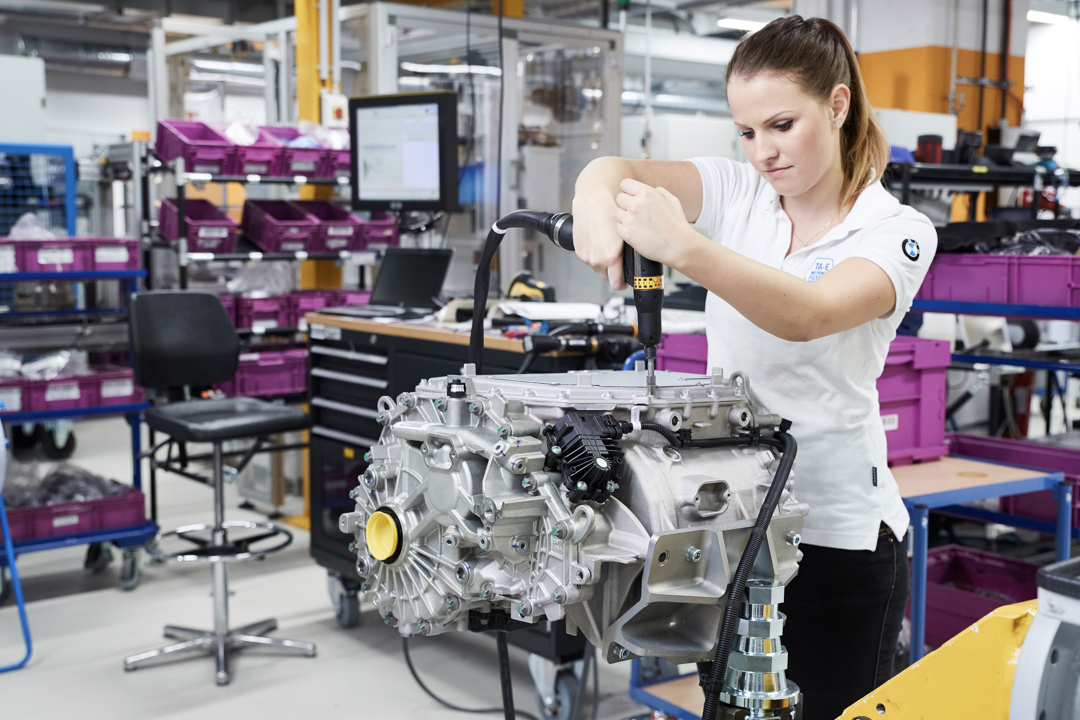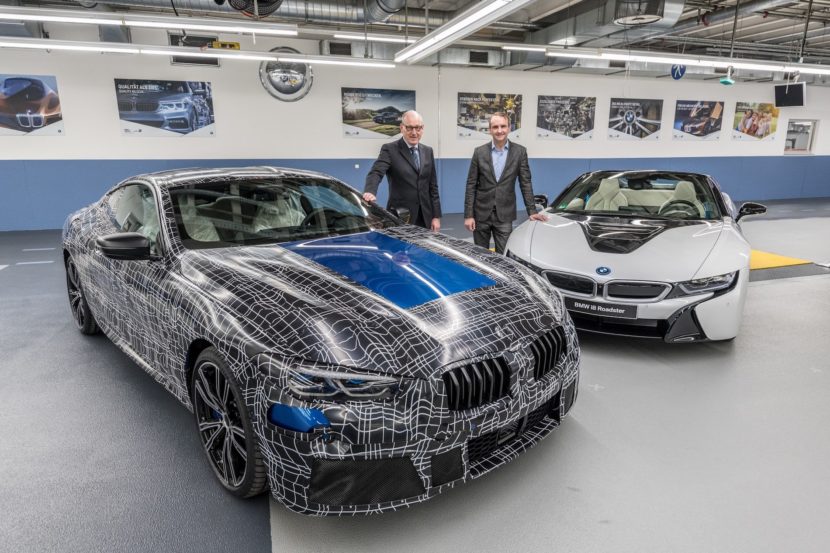BMW is expanding production capacity and increasing its staff at the Competence Centre for E-Drive Production in Dingolfing. Due to growing demand for electrified vehicles, the plant expects the number of modules needed for production of high-voltage batteries to double from the previous year. The number of electric motors required will also increase significantly.
BMW aims for hybrid and electric cars to make up a quarter of new vehicle registrations by 2021. The number of employees assembling electric motors in Dingolfing will rise to 1,400 by the end of 2020, and is slated to grow to 2,000 over the mid-term, BMW added.
Michael Nikolaides, head of Production Engines and E-Drives at the BMW Group: “We are embarking on a massive expansion of our Competence Centre for E-Drive Production in Dingolfing: from 8,000 square meters currently to 80,000 in the future. This is where we produce powertrain components for our fully and partially electric models. By the end of the year, we will increase our staff in this area from 600 to more than 1,400.” Up to 2,000 employees will work on electric motors, battery modules and high-voltage batteries in Dingolfing in the medium term.
Christoph Schröder, head of BMW Group Plant Dingolfing, adds: “Thanks to close cooperation between vehicle and component development, our Dingolfing site is now leading the transformation of the automotive industry. More than one in five BMW 5 Series Sedans built at our Dingolfing vehicle plant today is already a plug-in hybrid. We deliver premium e-mobility from Lower Bavaria to customers all over the world.”
The introduction of the new BMW 330e*, BMW X5 xDrive45e* and BMW X3 xDrive30e* plug-in hybrids, together with the pure electric MINI Cooper SE*, brings the number of electrified vehicles in the BMW Group line-up to 12. These will be joined in 2020 by additional electrified models, such as the BMW X1 plug-in hybrid and the fully-electric BMW iX3.
The BMW Group plans to expand its range of electrified vehicles to 25 models by 2023 – more than half of them fully electric. A quarter of the BMW Group vehicles sold in Europe are likely to be electrified by 2021; this percentage will reach a third in 2025 and half in 2030.






































































